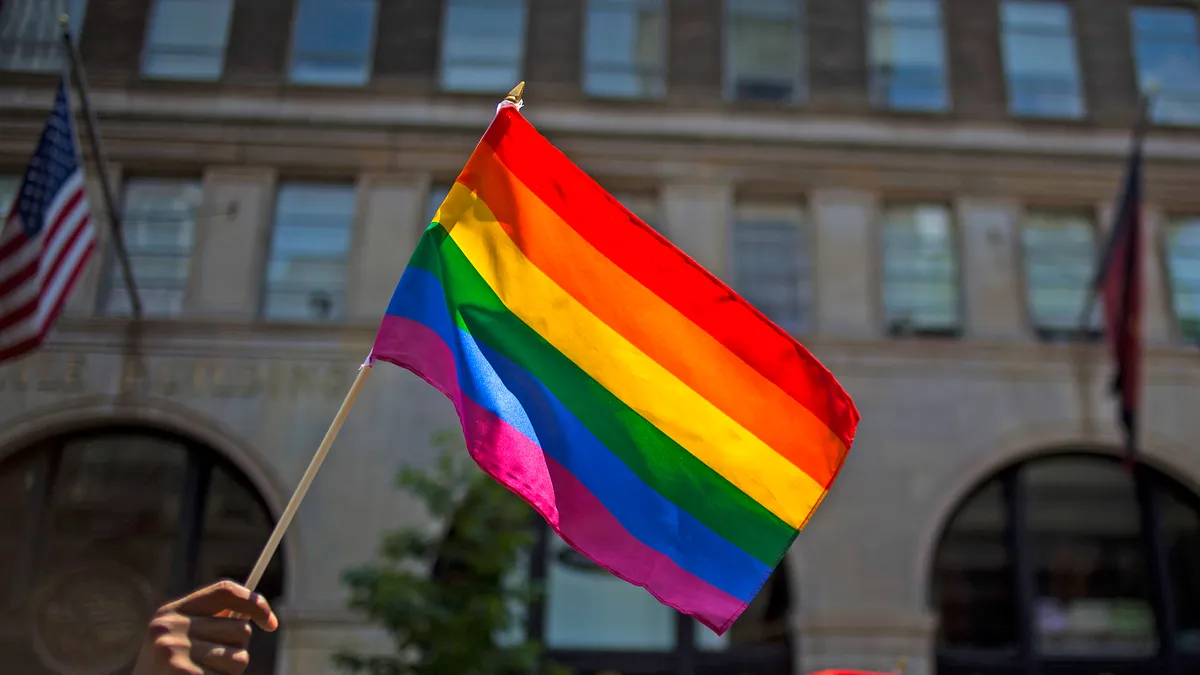Dive Brief:
- A recent Child Trends analysis found sex-ed curriculum or supplementary materials relevant to students identifying as LGBTQ in more than half of secondary schools in 17 states and the District of Columbia, according to data from 2018. Access to inclusive sexual health education has been shown to improve the health of those in the LGBTQ community and destigmatize the community.
- California, Maryland, Michigan, Missouri, South Carolina, Virginia and Washington saw a 10 percentage point increase or more in the number of schools offering LGBTQ-inclusive sex-ed curriculum. Mississippi’s metric dropped by 17 percentage points. It was the only state to see a drop.
- As of 2020, California, Colorado, New Jersey, Oregon, Rhode Island, Washington and the District of Columbia require inclusive sex-ed curricula. Alabama, Arizona and South Carolina repealed anti-LGBTQ sex-ed policies through court decisions and legislation. Florida, North Carolina and Oklahoma had policies against the inclusive curricula as recently as 2019.
Dive Insight:
The Child Trends report also found that from 2016 to 2018, 27 states and the District of Columbia had increases of greater than one percentage point in the percentage of schools offering sex-ed materials that are inclusive of LGBTQ youth.
Including LGBTQ in the curriculum can reduce bias-based bullying that many experience. A 2020 study from University of Connecticut's Rudd Center for Food Policy and Obesity study found nearly three-quarters of LGBTQ students have experienced such bullying.
An overwhelming 91% of 13- to 17-year-olds who are of sexual or gender minority report at least one experience of bias-based bullying, compared to about 36%- 40% of those who don’t use that identification. Sexuality-based bullying is also more strongly connected to suicide and depression than other types of bullying.
Gay-straight alliances at schools seem to foster tolerance and inclusion. When those alliances are in place, LGBTQ students report lower rates bullying, according to the Rudd Center study.
New York City Department of Education released a curriculum supplement last spring focused on adding more LGBTQ representation in history lessons.
The resource includes significant events in U.S. history and discusses how they impacted the LGBTQ community. For example, the supplement covers study of Frank Kameny, the first person to sue the federal government over LGBTQ discrimination. The city’s education department researched the supplement for two years and collaborated with the Museum of the City of New York, New York Public Library, New-York Historical Society and National Archives.
Though some states are mandating LGBTQ-inclusive curriculum, there is little enforcement of the rules and often significant pushback from parents and other community members. When New Jersey’s Highland Park School District joined a pilot program designed to add LGBTQ-inclusive curriculum, then-Superintendent Scott Taylor saw plenty of pushback — so he invited everyone in the school community to discuss their concerns with him.
Taylor held additional meetings with teachers and parents to address their questions and concerns. “I offered them my ear in listening," Taylor told K-12 Dive.






 Dive Awards
Dive Awards



